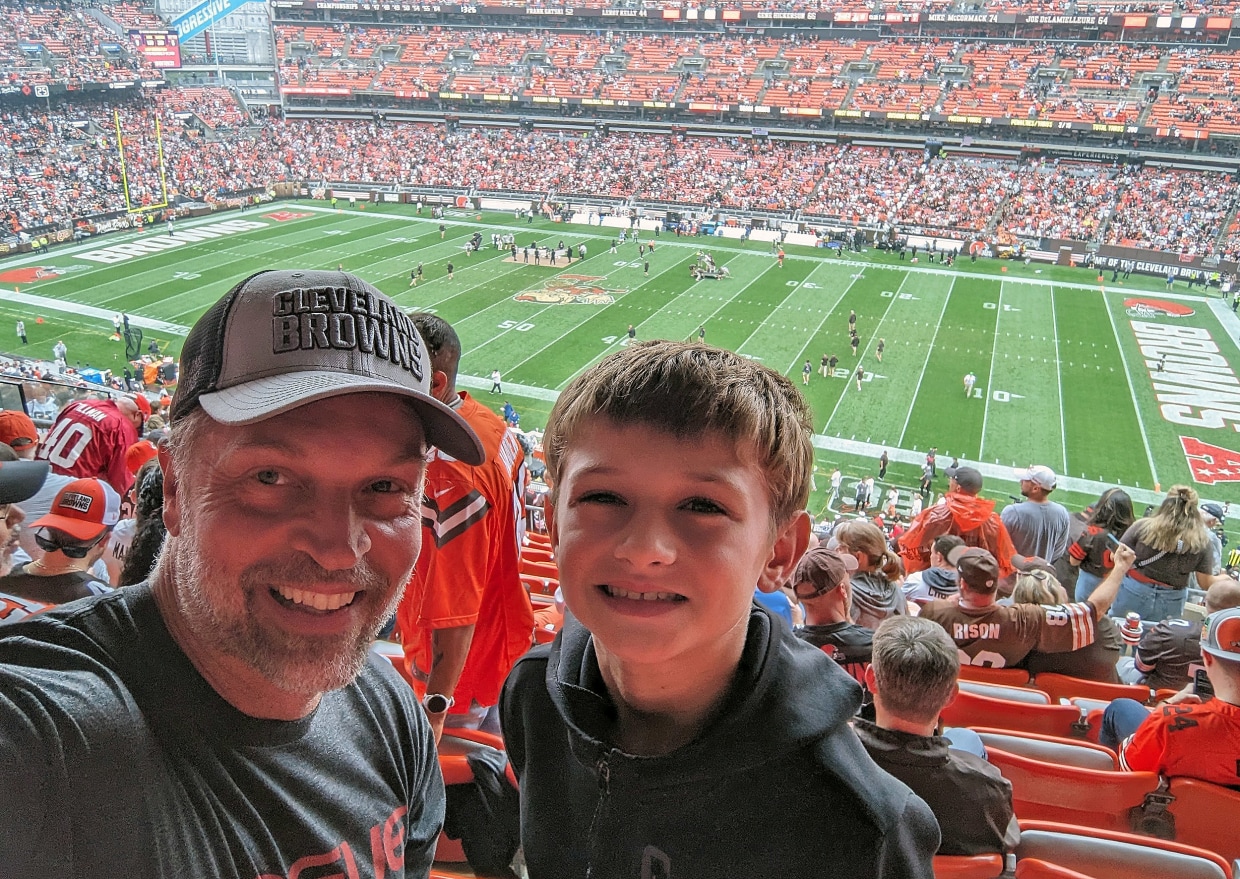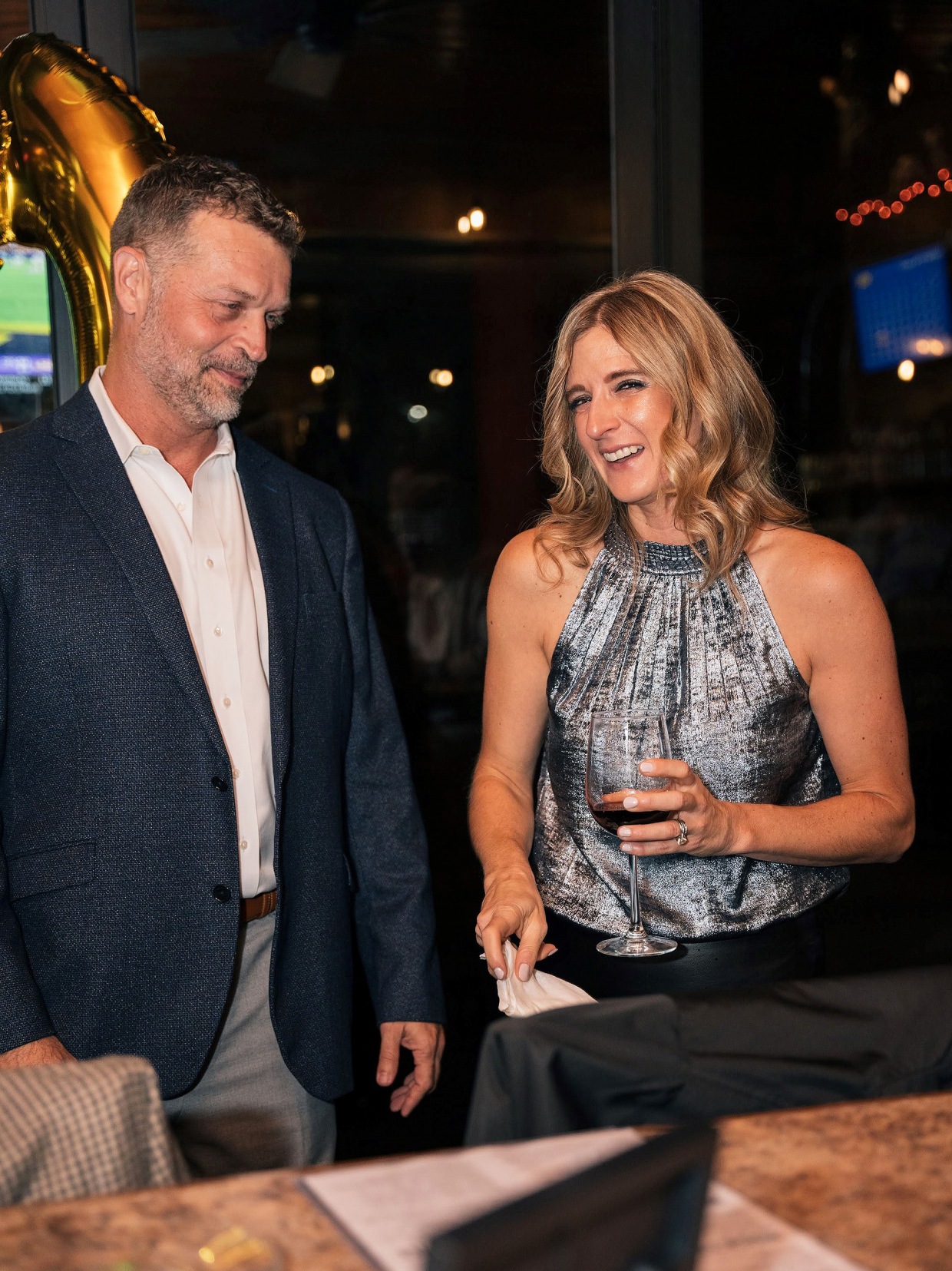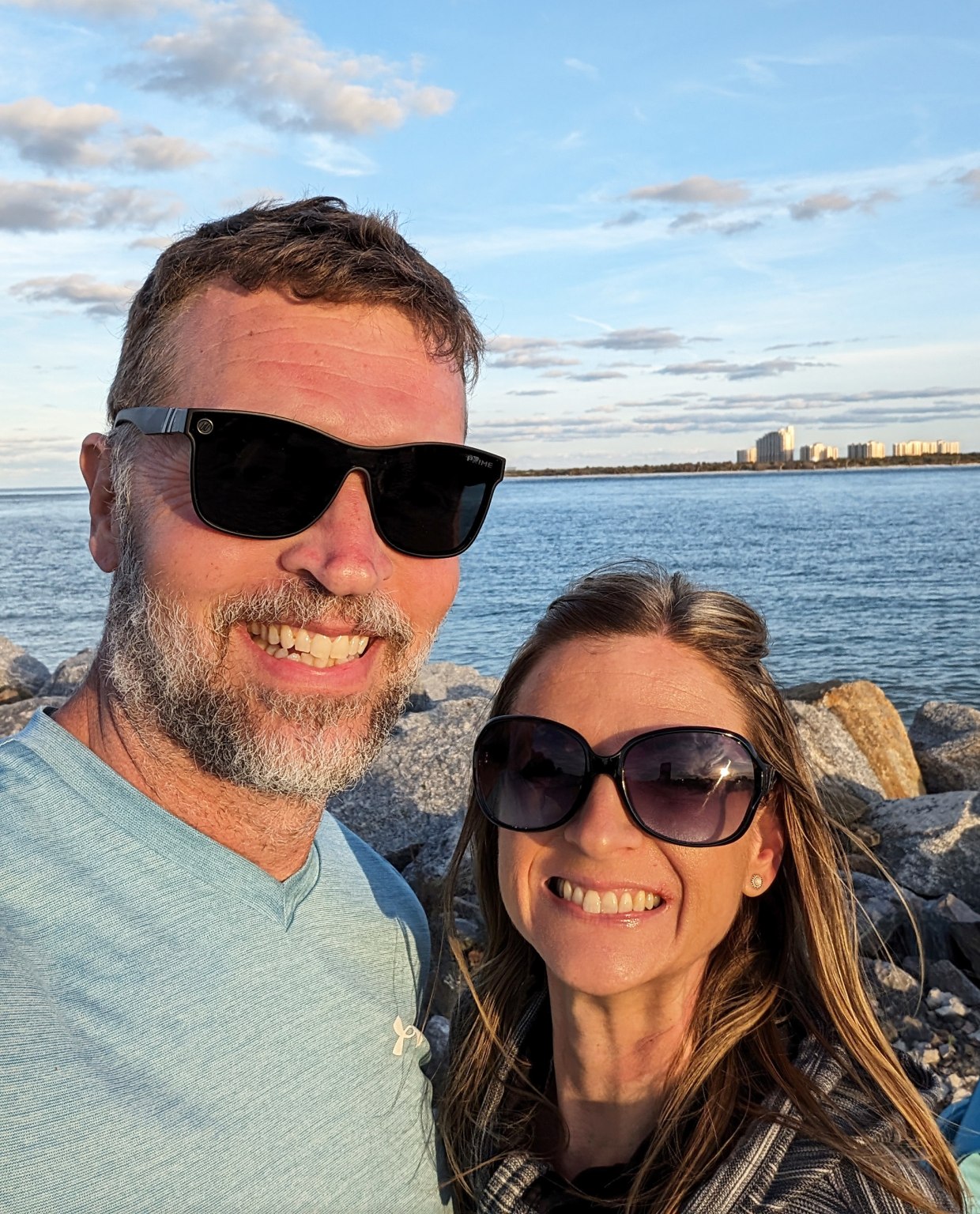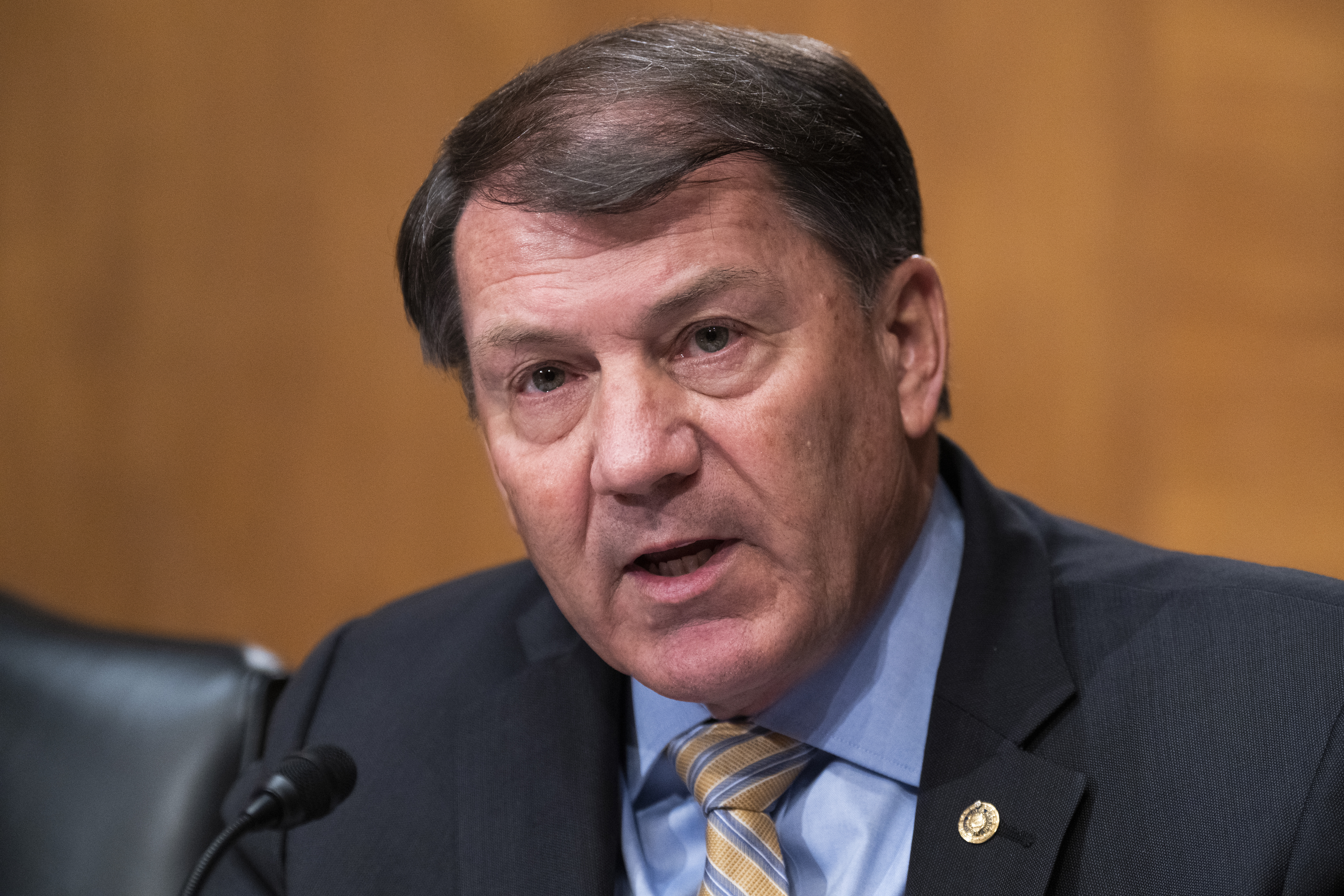After Chris Prewitt finished lifting during a session with a personal trainer on Dec. 27, 2023, he felt unexpected pain. While it was his first time working with this trainer, Prewitt, then 48, exercised often, including cardio and CrossFit.
“It wasn’t a terribly hard workout,” the 49-year-old from Avon Lake, Ohio, recalls to TODAY.com. “But after, my triceps and my biceps and my chest were all incredibly sore.”
Worried, Prewitt's trainer brought over a sports medicine doctor, who advised Prewitt to go to urgent care. His wife, Meredith, packed their kids in the car and rushed to pick him up. She missed the exit for urgent care but noticed they were right by a hospital. She glanced at her husband, who was gray and cold, and rushed him to the emergency room. This was fortunate as Prewitt was having a heart attack.
“I had one single artery that was completely blocked,” he says. “The artery is the left anterior descending artery … the widow maker.”
‘Picture of health’
Over the years, Prewitt enjoyed exercise, running hundreds of 5Ks, two marathons and participating in CrossFit. He doesn’t drink or use drugs, and eats a healthy diet and prioritizes sleep.
Get Tri-state area news delivered to your inbox. Sign up for NBC New York's News Headlines newsletter.
“I am often thought of as a picture of health,” he says. “I do all the things you’re supposed to do.”
U.S. & World

For the year leading up to the heart attack, Prewitt felt good for the most part, but he did notice that he was easily fatigued. He chalked it up to his age and parenthood.
“I didn’t know if this is what (nearing) 50 (felt) like,” Prewitt says. “I’ve got two young boys who are 9 and 6, and was finding myself at the end of my workday a little tired and sometimes having to need a break before we go play baseball or kick a soccer ball around the yard.”
Just to be safe, he visited his doctor and had bloodwork done three times. The most recent was a month before his heart attack.
“I had no markers of any kind. My total cholesterol seemed to be OK,” he says. “I had no real health issues other than being tired.”
For Christmas, his wife bought him a five-pack of sessions with a trainer, and Prewitt scheduled his first one immediately. After the workout, he explained the sensation he felt in his arms and chest to the trainer, who felt worried and found a doctor. That doctor recommended that Prewitt have someone drive him to an urgent care to get his heart checked.
“I call my wife to come pick me up, which in and of itself is a miracle. I’m pretty bullheaded,” he says. “I’m not one to take advice.”
On the way to the clinic, they got lost.
“She missed the exit for the urgent care and gets off the highway, and I’m slumped over in my seat,” Prewitt explains. “She’d never seen anyone this gray, and she grabbed my hand. It was ice cold. My heart had stopped.”
Across the street, though, Meredith saw Cleveland Clinic’s Avon Hospital at Richard E. Jacobs campus.
“She ran three red lights and pulled over to the ER and ran inside,” he says. “A bunch of health care workers came out, pulled me out of the car, brought me back to work on me.”
For 20 minutes, Prewitt received CPR and a dozen defibrillator shocks as the staff tried to get his heart back into a steady rhythm. After they stabilized him, they sent him to another Cleveland Clinic facility with a cardiac catheterization laboratory. Testing showed that Prewitt had a widow maker heart attack.
“I was able to be brought back,” Prewitt says, adding that he regained consciousness about 24 hours later.
Widow maker heart attack
When the left anterior artery has a blockage, what's known as a widow maker heart attack can occur. In younger patients like Prewitt, there might not be any symptoms.
“About 30% of patients don’t have any previous symptoms, but they suddenly drop dead,” Dr. Emad Nukta, a cardiologist at Cleveland Clinic, tells TODAY.com. “We see that mostly with the younger patients rather than the older patients, and that’s where the term of widow maker comes from.”

Sometimes patients have subtle symptoms, such as fatigue, that they might not think of as a sign of something being wrong.
“The worst one is the one where they really did not have symptoms. They were not aware of anything,” Nukta says. “They were exercising or working out, lifting weights or on a treadmill, and suddenly they drop dead.”
Symptoms can include:
- A feeling like indigestion
- Arm or neck pain
- Chest pain
Nukta says often a heart attack comes with extreme pain, but that’s not always the case.
“There’s a major misconception. They think pain is something like real burning or severe pain,” he says. “But chest pain is really not that severe pain. It’s uneasy pressure like pain, squeezing pain.”
People with lifestyle behaviors that increase the risks of their arteries hardening, called atherosclerosis, are at greater risk of experiencing a widow maker, Nukta says. Risk factors include:
- Being a smoker
- Having high blood pressure
- Having high cholesterol
- Having a family history of heart attack
- Having diabetes
He says it’s important for patients to know their family history to understand if they’re at risk of a widow maker. After having a heart attack, most patients need to continue seeing a cardiologist.
“I will tell my patients if you have a cardiac event, you’re stuck with me,” he says. “You will always be a heart patient.”
‘A very blessed life’
While Prewitt knew that one of his grandfathers underwent two bypass surgeries, he did not realize his other grandfather died at age 49 of a widow maker heart attack.
“My lesson to all the people I’ve told this to is that you might think that you’re doing all the right things, but if you are unaware of your genetic history, you need to find out and also let your general practitioner know,” he says.

Prewitt takes several medications now to support his heart and keep his artery open. He recently finished cardiac rehabilitation.
“By the end of 12 weeks, I was running nine-minute miles for a good distance,” he says. “I have no restrictions. A month ago, I was in Universal (Studios) with my wife and my boys and rode some rollercoasters. I continue to run and lift weights.”
This experience has taught Prewitt the importance of healthy habits, and he encourages others to “take their health very seriously.”
“There are health markers or genetic things that are coded in you that you cannot run away from,” he says. “Through knowledge and proactive medical care, you can identify these things early enough and be able to do something about it before it becomes a real event.”
Having a heart attack caused Prewitt to re-examine his life.
“It’s incredibly painful to think about my young boys going through life without their father,” he says. “For the majority of my life, I’ve been terrified of dying. Have I done enough? Have I lived enough, lived the type of life that I want to? And after this event I am not fearful of dying anymore. … I’ve lived a very blessed life.”
This story first appeared on TODAY.com. More from TODAY:



